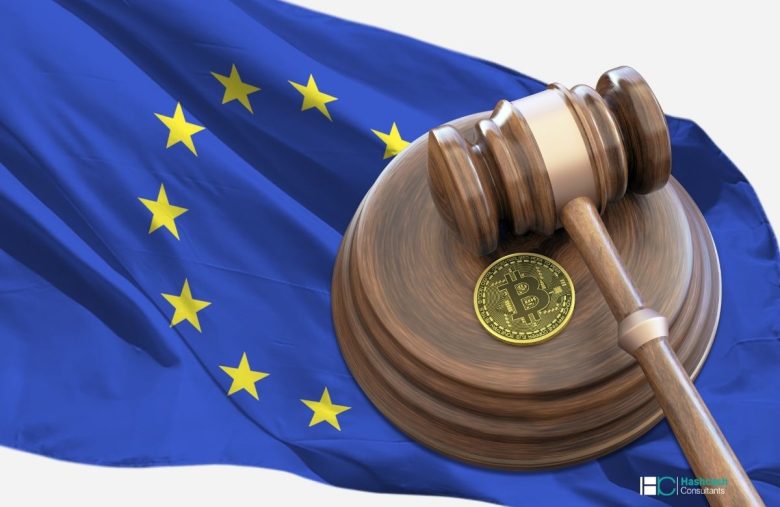“Decoding the EU’s New Crypto-Regulation Law: Implications, Advantages, & Challenges”

In recent times, the European Union (EU) has taken a significant step forward in fortifying its financial system and combating money laundering. This has been achieved through the introduction of a novel law that mandates identification for all cryptocurrency transactions. Part of the EU’s new anti-money laundering package, this law is instrumental in shielding both the financial system and EU citizens by monitoring and discerning transfers of crypto-assets.
The decree was announced on June 29, 2022, and it has since established a framework that enforces a higher degree of transparency and traceability within the cryptocurrency space. This move is expected to throttle opportunities for wrongdoers to exploit the system for illegal activities, leading to a more secure financial climate in the region.
Key Takeaways:
A significant aspect of the new regulations is the mandatory identification and verification of clients by businesses dealing with cryptocurrencies. Furthermore, businesses are obligated to keep an eye on transactions and report any dubious activity to the relevant authorities. This provision, effective from July 20, 2021, ensures a more open and traceable operation within the crypto market.
Additionally, the EU is implementing stringent EU-level criminal law provisions and information exchange. This move involves the establishment of clearer rules on how transactions are to be identified. It is anticipated that this development will engender better coordination among law enforcement agencies in their pursuit of potential money laundering cases.
A revolutionary feature of these regulations is the impending implementation of the European Digital Identity. This innovative identity system will be available to EU citizens and residents, facilitating the sharing of information with services requiring identification. The European Digital Identity will be paramount in the new identification requirements for crypto transactions.
Finally, the EU is making concerted efforts to buttress its financial system by enhancing the exchange of financial intelligence among member states. This includes transaction reports and relevant money laundering information. This development, announced on December 7, 2022, is expected to improve monitoring and detection of suspicious activities, leading to a more secure and transparent crypto ecosystem.
Pros:
The benefits of these regulations are manifold. First, they enhance transparency in the cryptocurrency market, making it difficult for criminals to manipulate the system for unlawful activities. This enhanced transparency also helps boost the confidence of investors, as it minimizes the risk of fraud and money laundering.
Secondly, the introduction of the European Digital Identity will revolutionize information sharing, creating a more seamless and secure environment for transactions. This could potentially encourage more individuals to engage with cryptocurrency, thereby fostering market growth.
Finally, the regulations facilitate the exchange of financial intelligence, enabling better monitoring of transactions and fostering cross-border collaboration. This will contribute to the EU’s fight against global financial crime, enhancing the overall security of the region’s financial system.
Cons:
Despite the numerous advantages, there are some potential drawbacks to these regulations. The increased regulatory scrutiny could potentially deter some investors and businesses from engaging with the cryptocurrency market, stifling innovation and economic growth within the sector.
Moreover, the requirement for businesses to monitor transactions and report suspicious activity could place a significant burden on small and medium-sized enterprises (SMEs). These businesses might lack the resources to comply with these regulations, potentially leading to a decrease in market diversity.
Finally, there are privacy concerns surrounding the European Digital Identity. While it will enhance security, critics argue that it could lead to an invasion of privacy, as it may give the authorities unfettered access to personal data.
In conclusion, the EU’s new crypto-regulation law signifies a major step towards establishing a more secure and transparent financial ecosystem. While it promises several benefits, it’s important to address the potential drawbacks to ensure the sustained growth and diversity of the cryptocurrency market.



